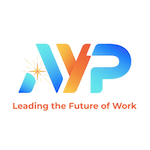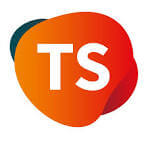A Practical Guide to Using EOR Services in China
Hiring in China is exciting; you get access to a massive talent pool, especially in places like Shanghai and Beijing, where businesses scale fast.
But let’s be honest: the admin side can be a grind. If you miss a contract deadline or underpay social insurance, it’ll bite back quickly. That’s why a lot of foreign companies lean on an Employer of Record (EOR).
They become the legal employer on paper, take care of payroll and compliance, and save you from learning every rule the hard way.
Getting contracts right
One of the fastest ways I’ve seen companies get fined in China is by delaying contracts. The law is strict: if you don’t sign within one month, you could be paying double wages. Wait longer than a year and the worker is automatically permanent, whether you like it or not.
Most contracts are written in Chinese because that’s what officials recognize. You can add an English version, but make sure the contract says which version wins if there’s a conflict.
Here’s how probation usually works:
- Short contracts? One month max.
- One to three years? Two months is the limit.
- More than three years, or open-ended? You can stretch to six months, but that’s it.
Anything longer than that won’t hold up if challenged.
Pay, hours, and overtime rules
Minimum wages aren’t set across the whole country. Each city decides its own rates, and the difference between, say, Shanghai and a smaller inland city can be pretty big.
The standard schedule is eight hours a day, five days a week. But overtime adds up quickly:
- Workday overtime? 150% pay.
- Rest day work with no compensatory time off? Double pay.
- Public holidays? Triple pay — no exceptions.
I’ve seen small firms run into trouble just because they didn’t track hours properly. In disputes, the law almost always leans toward the employee.
Leave and holidays
Annual leave isn’t based only on the time someone’s been with you, but on their total working years. That means if someone has already worked ten years elsewhere, they walk in with more leave entitlement.
- Less than a year of total work: no statutory leave
- One to ten years: five days
- Ten to twenty years: ten days
- Over twenty years: fifteen days
On top of that, there are 13 statutory public holidays each year. The tricky bit? China often shifts weekends to make long breaks, so you might end up working on a Sunday, so everyone gets a week off for Spring Festival. It feels odd if you’re new, but it’s totally normal here.
Hiring rules you should know
Recruitment is also regulated. Job ads can’t say “male only” or “from Beijing only.” Regulators crack down hard on this, especially on gender bias. Health checks are common but have to follow official guidelines.
If you’re thinking of using agency workers, know that labor dispatch is capped at 10% of your workforce and is only meant for temporary or auxiliary roles. And unions exist; if your employees organize one, the company has to allow lawful activities.
Termination and severance
There’s no “at-will” firing here. You need a legal reason to terminate someone, like serious misconduct, continued poor performance after training, or genuine redundancy. Even then, you owe notice or pay in lieu.
Severance is standard and works like this: one month’s salary for every year of service, capped at twelve years. It’s calculated on the average salary of the past twelve months.
I’ve seen employers shocked by the bill when someone’s pay had gone up recently; the math doesn’t freeze at the old rate.
Payroll and taxes
Payroll runs monthly. Your EOR will handle: income tax deductions (IIT is progressive and includes special deductions like housing rent and kids’ schooling), plus the employer and employee contributions to social insurance and the housing fund.
Those contributions are the big cost driver. In tier-one cities, the total employer portion can add 30–40% on top of base salary. This is why you never want to just budget “salary × headcount” always ask your EOR for the full employer cost in the city you’re targeting.
Bringing in foreign hires
Hiring expats is doable but slower. The usual path looks like this:
- First, a Z work visa
- Then, a work permit
- Finally, a residence permit after they arrive
That process needs notarized documents, medical checks, embassy visits, and local registration. It normally takes six to twelve weeks, sometimes more if the paperwork isn’t perfect.
By contrast, a local hire can often be onboarded in two to four weeks. I’ve seen expat starts pushed back months because a diploma wasn’t notarized properly, so triple-check the documents.
Employees vs. contractors
Calling someone a “contractor” when they work like an employee is risky here. If they have fixed hours, a manager, and company equipment, the law treats them as an employee.
Misclassification can mean fines and retroactive contributions. An EOR sidesteps this because it becomes the employer on record.
What EOR services cost
Pricing depends on the service level and who you’re hiring:
- USD 199–350 if you just want payroll support
- USD 350–800 for a full EOR package (payroll, social insurance, housing fund, HR help)
- USD 800–2,000+ for expat or senior hires needing visa support and extras
Always look at the total employer cost, not just the EOR’s service fee. Shanghai’s housing fund rates alone can make the same hire much more expensive than in Chengdu or Wuhan.
Onboarding timelines
For locals, it’s pretty quick, two to four weeks if documents are ready. For foreigners, think six to twelve weeks. Embassies, medicals, and government approvals all add time.
EOR vs. setting up your own entity
Setting up a wholly foreign-owned enterprise (WFOE) can take months and involves high upfront legal and accounting costs. If you’re only bringing on a handful of people, it’s rarely worth it.
An EOR lets you hire right away and test the market. Later, if you grow beyond 10–20 staff and want full control, you can set up an entity. Many firms don’t bother because the EOR setup works fine long-term.
Things that trip companies up
Some examples I’ve seen:
- Payroll schedules shifting because holidays were rearranged
- Housing fund contributions in Shanghai being way higher than expected
- Expats delayed months over one missing notarized diploma
- Employers paying double wages because contracts weren’t signed on time
These issues aren’t rare; they happen all the time to companies new to China. A good EOR usually prevents most of them.
Final thought
China’s a huge opportunity, but it’s not forgiving if you miss the rules. From double-wage penalties to heavy contributions, compliance is everything. For most newcomers, an EOR isn’t just a convenience; it’s the only realistic way to hire safely and quickly.


































